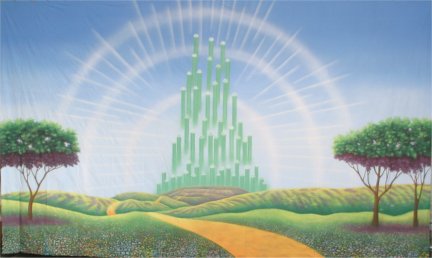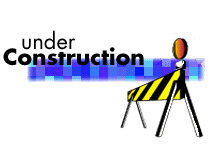
Click here for audio: |
I have formed a non-profit organization to promote the ongoing fulfillment of Micah's “Vine & Fig Tree” vision. Distilled into a single proposition, Vine & Fig Tree stands for this:
Jesus is the Christ Today
The name “Vine & Fig Tree” comes from Micah 4, which we looked at yesterday. We're going to look at that passage in a little more detail today.
This website is sponsored by:
The name "Vine & Fig Tree"
comes from the fourth chapter of the prophet Micah, and is set forth below.
You've probably heard Micah's words before -- we beat our "swords into plowshares"
and everyone dwells safely under his own "Vine & Fig
Tree."
America's Founding Fathers were familiar with this vision: "Vine & Fig Tree" is the worldview that made America "the greatest nation on God's green earth." This vision, combined with Christian morality, made America the most prosperous and admired nation on earth. The Federal Government subsequently repudiated the idea that America is a Christian nation, and the U.S. has gone from prosperity to bankruptcy, and from admiration to ridicule. |
George Washington's Diaries are available
online at the Library of Congress. The LOC.GOV
website introduces Washington's writings with these words:
 ,
has found more than 40 references to the “Vine
and Fig Tree” vision in Washington's Papers. ,
has found more than 40 references to the “Vine
and Fig Tree” vision in Washington's Papers.Many other American Founders wrote of this ideal. "Vine & Fig Tree" is the original "American Dream."
The best place to see the Vine & Fig Tree ideal is in the book of Micah. |
|||||||
| Let's look at Micah's prophecy (on the left) and ask a few questions (on the right): |
| And
it will come about
in the last days That the mountain of the House of the LORD Will be established as the chief of the mountains And it will be raised above the hills |
Are we
in the "last days?" When did this establishment take place? |
|
| And the
peoples will stream
to it. And many nations will come and say, "Come, let us go up to the mountain of the LORD And to the House of the God of Jacob, |
Is Christianity doomed to minority status throughout history? Hasn't Christianity been growing since the first century? | |
| That
He may teach us about His ways And that we may walk in His paths." For from Zion will go forth the Law Even the Word of the LORD from Jerusalem. |
What should be the Christian's attitude toward the Law? Isn't every Word of a "Lord" "Law?" | |
| And
He will judge between many
peoples And render decisions for mighty, distant nations. Then they will hammer their swords into plowshares And their spears into pruning hooks; Nation will not lift up sword against nation And never again will they train for war. |
Are we commanded to
beat our swords into plowshares today? Or do we wait for the Second Coming? Are Christians "pacifists?" |
|
| And each of them will sit under his | What
is a family? What about private property? |
|
| Vine
and under
his
fig tree, With no one to make them afraid. For the LORD of hosts has spoken. |
What about technology? What about the military? What is it that really brings "security?" | |
| Though
all the peoples walk Each in the name of his god, As for us, we will walk In the Name of the LORD our God forever and ever. |
What if all the politicians, university professors, TV commentators, bloggers, newspaper editors, rock stars, scientists, CEO's, celebrities, athletes, authors, and think-tanks repudiate the Vine & Fig Tree vision and tell you not to believe it? | |
| In that day, saith
the LORD, will I assemble her that halteth, and I will gather her that is driven out, and her that I have afflicted; And I will make her that halted a remnant, and her that was cast far off a strong nation: and the LORD shall reign over them in mount Zion from henceforth, even for ever. |
Should we strive to be on top, or to help those on the bottom? Is God on the side of those who have accomplished much by their own power and initiative, or is He on the side of those who are willing to be used by God to accomplish much to His Glory? |
